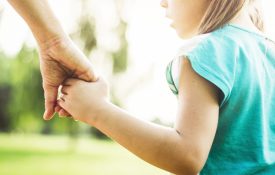-
You’re an Adult. Your Brain, Not So Much.
The New York Times: Leah H. Somerville, a Harvard neuroscientist, sometimes finds herself in front of an audience of judges. They come to hear her speak about how the brain develops. It’s a subject on which many legal questions depend. How old does someone have to be to be sentenced to death? When should someone get to vote? Can an 18-year-old give informed consent? Scientists like Dr. Somerville have learned a great deal in recent years. But the complex picture that’s emerging lacks the bright lines that policy makers would like. “Oftentimes, the very first question I get at the end of a presentation is, ‘O.K., that’s all very nice, but when is the brain finished?
-
The Psychology Behind Bad Gift-Giving: Where Buyers Go Wrong
NBC: As though holiday shopping weren't nerve-racking enough, there's yet another factor to stress out about: the prospect of buying a bad gift. Despite our best intentions, we often end up purchasing gifts that aren't what recipients want or need. Hey, we've all been on the other side of the equation, haven't we? Just think about the butter warmer and beer hat hiding in your closet. Well, it's time for us consumers to take charge and buy our loved ones thing that truly serves them! Read the whole story: NBC
-
The Best Music for Productivity? Silence
The Atlantic: Like most modern “knowledge” workers, I spend my days in an open office. That means I also spend my days amid ringing phones, the inquisitive tones of co-workers conducting interviews, and—because we work in a somewhat old, infamous building—the pounding and drilling of seemingly endless renovations. Even so, the #content must still be wrung from my distracted brain. And so, I join the characters of trend pieces everywhere in wearing headphones almost all day, every day. And what better to listen to with headphones than music?
-
How to Help Kids Learn to Love Giving
The Huffington Post: During the holidays, opportunities abound to help kids understand why and how to help people in need, with food drives proliferating and countless organizations making pitches for end-of-year donations. And there’s scientific evidence that kids should be receptive to those messages: Research suggests that they have a deeply rooted instinct to share and to help others, from the time they’re very young—one study even found that toddlers enjoy giving to others more than they like getting treats for themselves. Kids, it seems, have a strong, natural drive to be kind and generous. ...
-
The Ideal Mother Vs. The Ideal Worker
NPR: A couple of weeks ago, I participated in a panel discussion about motherhood in academia. Along with other female professors with children, I answered questions from the audience, most of whom were female Ph.D. students thinking about whether and when to have children — and whether academia was the right choice for them. One of the questions — posed with greater eloquence and context — was essentially this: Is it possible to be a good academic and also a good mother? Read the whole story: NPR
-

Children Can ‘Catch’ Social Bias Through Nonverbal Signals Expressed by Adults
Preschool-aged children can learn bias even through nonverbal signals displayed by adults, such as a condescending tone of voice or a disapproving look.

